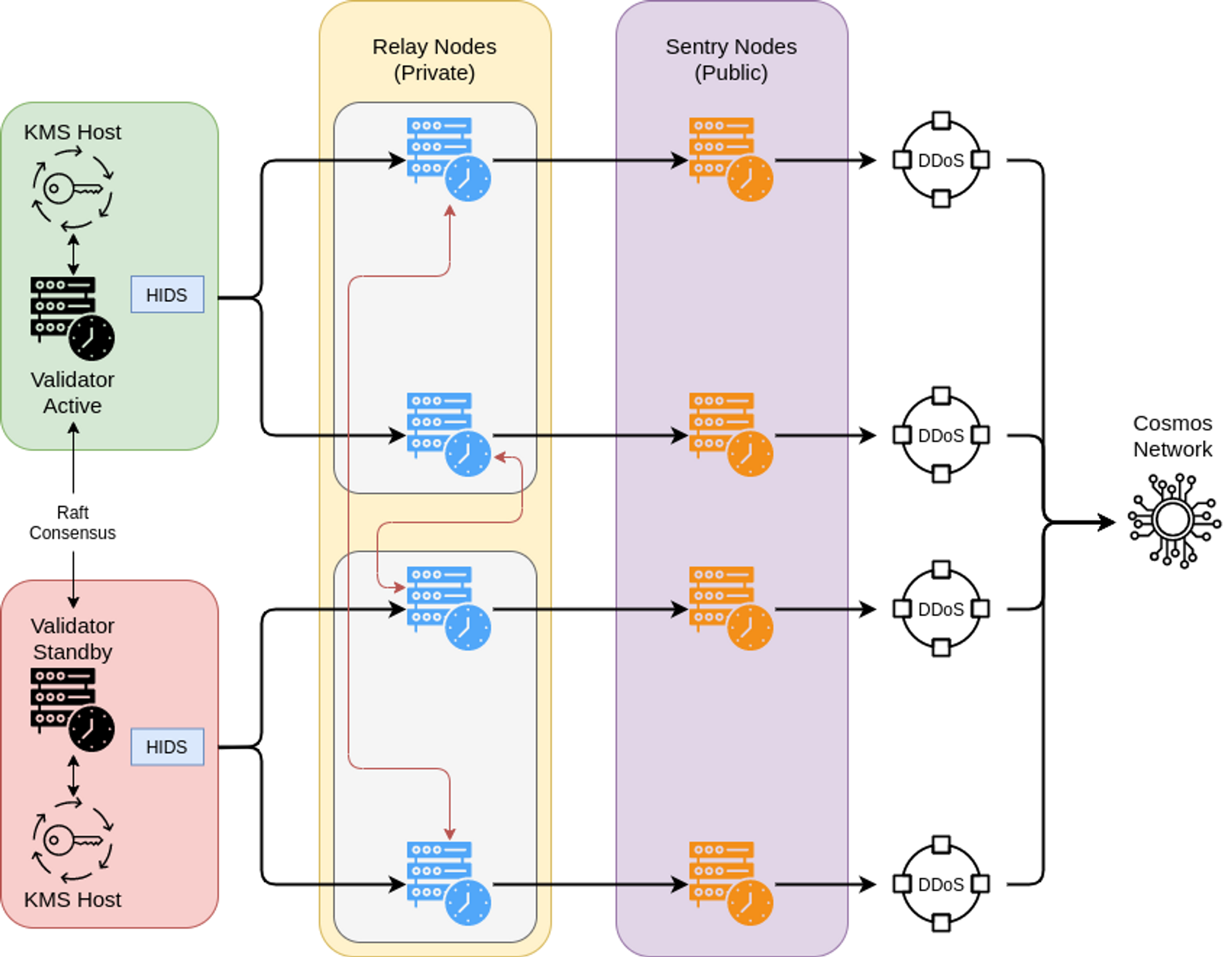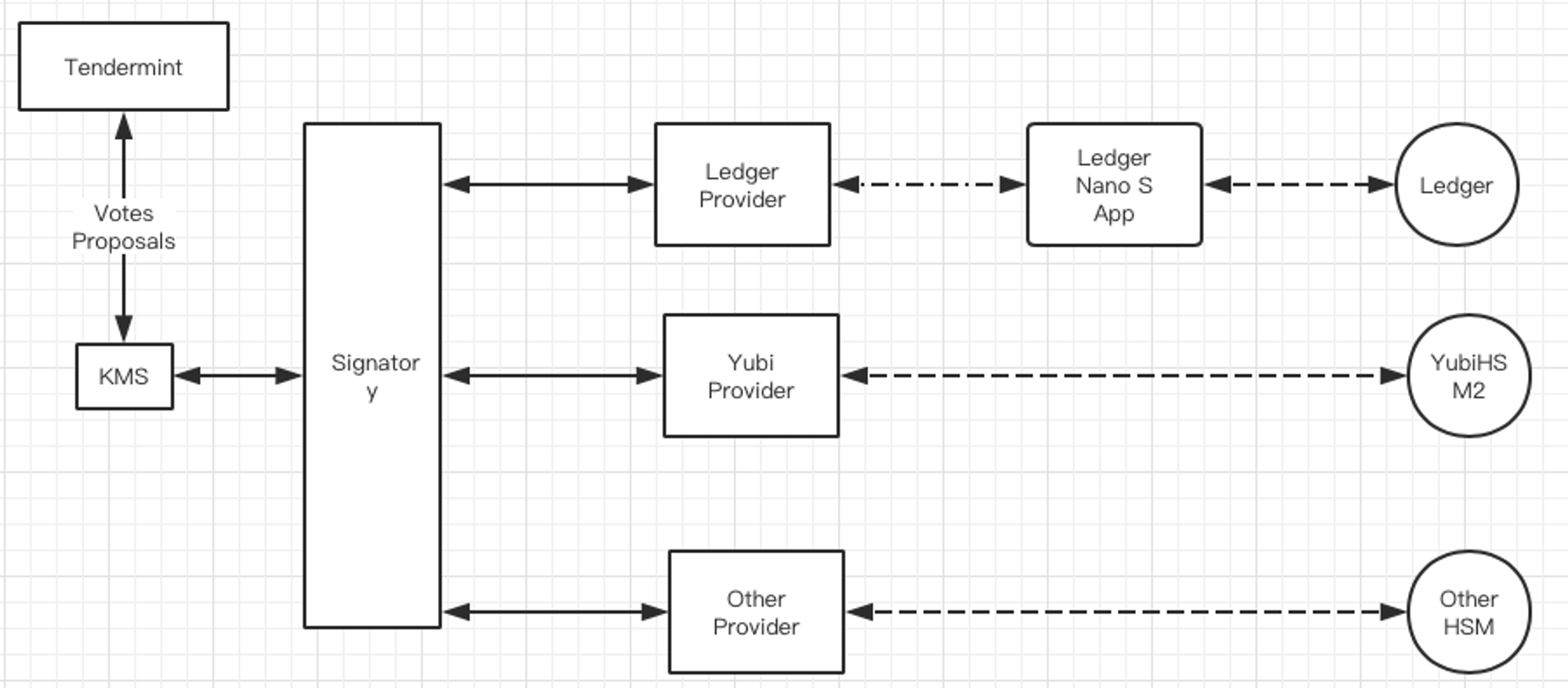Table of Contents
Projects
- Re Protocol
- Cendermint
- Coris Explorer
- Bootstrap Me
- Node Tooling
FIX protocol on blockchain.
func main() {
sourceCode := "https://github.com/jim380/Re";
open(sourceCode);
}
A feature-rich Prometheus exporter tailored for Cosmos SDK chains.
func main() {
sourceCode := "https://github.com/jim380/Cendermint";
open(sourceCode);
}
A community-built explorer for the Cosmos ecosystem, built from scratch.
func main() {
sourceCode := "https://github.com/jim380/coris-v2";
open(sourceCode);
}
A tool for easier and faster node launch on any Cosmos chain.
func main() {
sourceCode := "https://github.com/jim380/bootstrap-me";
open(sourceCode);
}
Streamline node operations with code.
func main() {
sourceCode := "https://github.com/jim380/node_tooling";
open(sourceCode);
}
Infrastructure
Networking
At the high-level our validator nodes are shielded from the public internet by a cluster of relay nodes in a private network. The relay nodes sit behind a separate cluster of sentry nodes that’s connected directly to the open network. This architecture design was put in place to mitigate DDoS attacks by employing the following techniques:
- Firewall Protection - Our validator nodes’ public IPs are not gossiped to the open network or whitelisted, trusted peers. The firewall on the relay nodes blocks all connections from IP addresses that’s not whitelisted
- VPN Connection - Our relay nodes are interconnected using VPN, and have WireGaurd installed from host to host. We opted for VPN instead of VPC peering so that we wouldn’t be restricted to having the relay nodes deployed and hosted on one single cloud platform
- Private Linking - Our validator nodes are connected with each others using Megaport, a software that enables direct and private connectivity between different environments to negate the use of the public internet
See below for a detailed overview of our architecture.

Key Management

We employ Tendermint KMS (tmkms) with YubiHSM2 for handling block signing and enforcing double-sign protection e.g. Proposal, PreVotes, PreCommits. This combination ensures high availability of the validator’s signing keys as well as the ability to survive a compromised node process or host machine. Similarly our account keys are safely stored in the Ledger Nano S hardware wallets.
Monitoring and Alerting
- Leveraging our proprietary exporter Cendermint , we harness the power of Grafana, Prometheus, and Alert Manager to deliver robust, time-series based monitoring and alerting
- As a secondary safeguard, we employ Uptime Kuma, ensuring our systems are always up and running
- For comprehensive infrastructure and application oversight, we operate a self-hosted Checkmk instance, providing us with advanced monitoring capabilities
Additional Security Measures
Operating System Security
- Appropriately patched linux kernel version
- Security framework enabled (e.g. SELinux)
- GRUB boot loader configured with password
- Root permission enforced on system-level directories and files
- Enforced password policy
Remote Access
- Pluggable Authentication Modules (PAM) enabled
- SSH hardening (e.g. no root login, no X11Forwarding etc)
- SSH keys stored in hardware wallets
Networking
- Firewall, iptables configured with explicit rules
- External DDOS protection
- Intrusion detection system enabled with OSSEC and Fail2Ban
NFT Drops
Tip
Click to view images in high resolution.




















